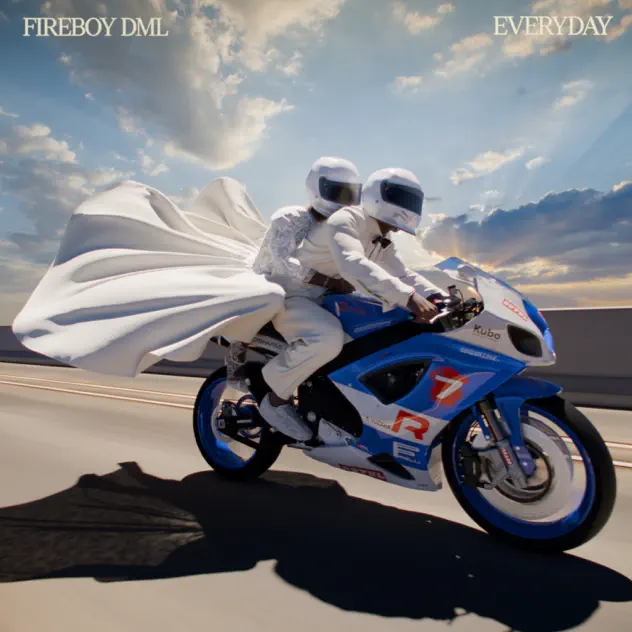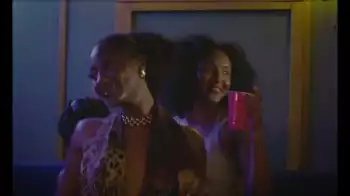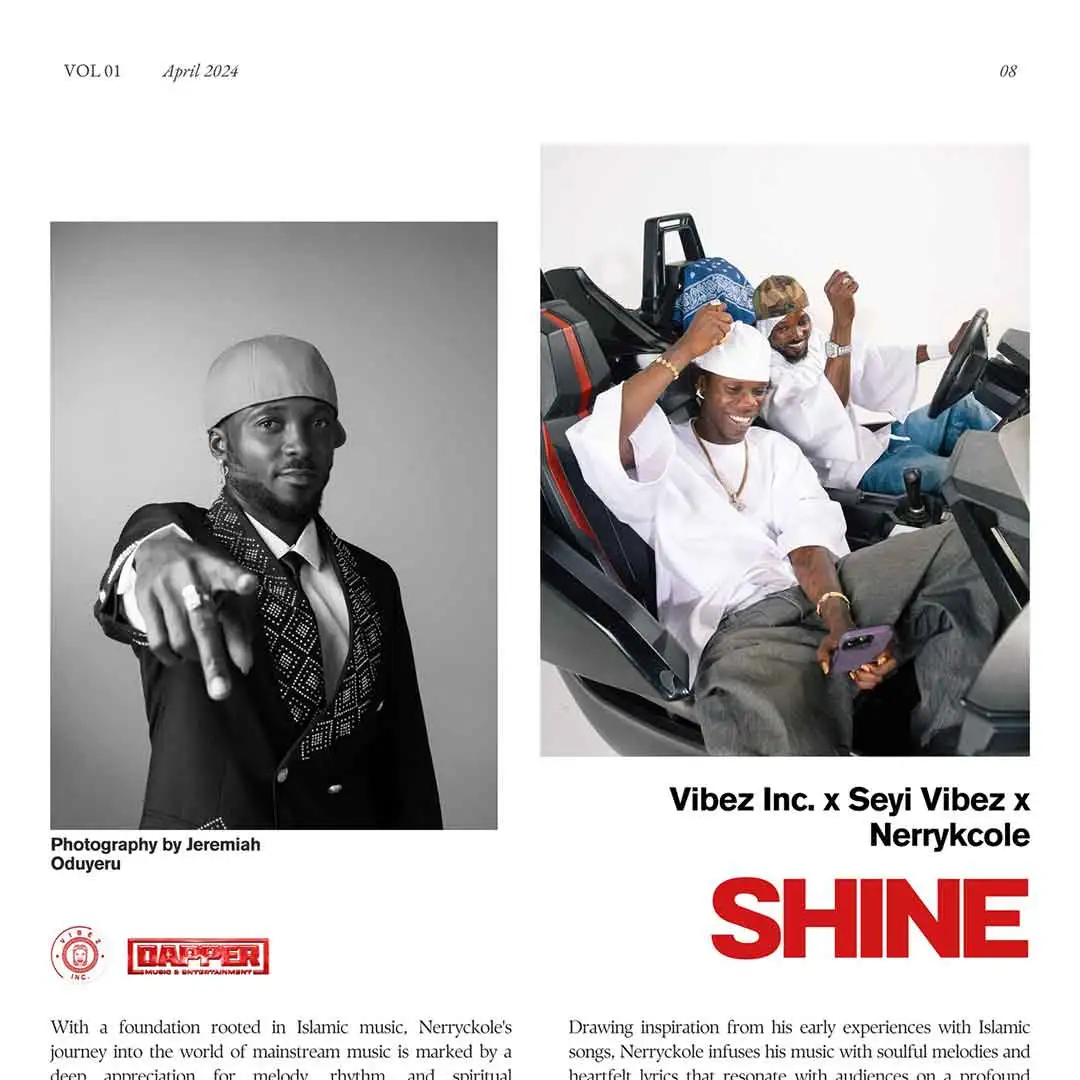Conflicted Destiny - Season 1 Episode 23
.jpg?w=900&ulb=true&ssl=1)
Conflicted Destiny - Season 1 Episode 23
As a result, we had to spend five days in Bong Mines. It wasn’t easy for me because I felt unwelcome. Georgie’s relatives were cold to me, and my relationship with Georgie became strained. He spent most of his time with his family; he went out with them and sometimes spoke in their native dialect, which I could not understand. I, on the other hand, spent most of my time indoors since I was never invited to hang out with the family. Occasionally, they offered me small portions of food, which I would gratefully accept. Liberians ate one main meal a day, normally rice, and it was usually for lunch. I didn’t know what they ate for breakfast or dinner, and Georgie’s family barely made lunch. I suspected that maybe they did, but that they hid the food from me because they didn’t want to share. Sometimes I would wander around the neighborhood and people on the street would offer me food. After five days, Georgie was able to raise some cash from one of his girlfriends and we headed back to Monrovia. He went to stay with some friends of his in town, and I returned to the wrecked ship where I’d slept before my recent journey.
I continued hustling at the fishing pier. Sometimes I would visit my friends at the Star and Disco hotels, especially when I was hungry for Nigerian food. There was a Nigerian businesswoman, Ngozi, who lived at the Star. From time to time she would make traditional Igbo food and invite all the Nigerian men at the two hotels to eat. She was well respected among the Nigerians and well-connected in the Liberian government. Ngozi was heavyset and in her late thirties. Her boyfriend, Charles, was a few years younger. He was another drug dealer who had been stranded in Liberia after he was caught and arrested in transit. I was told it was Ngozi who had facilitated his release from prison. They had been living together as a couple for the past three years. She frequently went to Nigeria to buy merchandise, and Charles would help her sell the goods in Liberia.
On one occasion when I went to Ngozi’s place to eat, my friend Baba Ali was also there. He told me that the guy who had been housing him in his hotel room was just thrown out, and he had nowhere else to go. I told him not to worry; there was more than enough room on the wrecked ship.
At first, the other guys living on the ship weren’t pleased, but it didn’t matter. Baba Ali immediately settled in with us, and I spent the next few days showing him the ropes around the port. Having him stay with me was fantastic because I needed a reliable partner for my next move: I was counting on him stowing away with me. Baba Ali adopted to the life of hustling faster than I wanted. He was a very likable guy and was able to make new friends fast. In no time he stopped relying on me for food and started hustling on his own. He also started hanging out with bad guys. They spent all day smoking marijuana and sleeping, then at night they would steal from the port. As soon as I realized that I couldn’t turn him around, I decided to stay away from him. I had never done drugs in my life, but it seemed like all the people that I associated with were either drug pushers or users. At this time in my journey, I needed to stay focused. I made a conscious decision not to be part of any of the stealing or smoking gangs.
A few weeks later, when I went back to the Star Hotel, I ran into another Igbo boy called CY. He had grown up in Aba just like me, and we immediately became friends. His story was no different from all the other Nigerians in Liberia. He was caught in Sierra Leone transporting cocaine, and had served some time for it. He had spent a few years living in Sierra Leone before he moved to Liberia. Now he was engaged in a legitimate business. He had come up with a brilliant business idea; he realized that most Liberians were very poor and couldn’t afford some basic items like shoes, clothes, cosmetics, and jewelry, so he would buy these things from other Nigerians and sell them to the Liberians, allowing them to pay for the items in installments. This scheme was very effective, and CY tried to convince me to partner with him. Initially, I hadn’t wanted to join him because I didn’t want to be far from the port—I never knew when the right opportunity to stow away might come. But a few days later I ran into CY again, this time at the port selling to the ladies who sold food. I didn’t have money that day, so he paid for my lunch. After that, I was compelled to walk with him and see how he did his business. It was a tiring ordeal for me. We walked around for hours from street to street and house to house, collecting money. At times it was frustrating for CY because some people had no money to pay, and others had moved, but most times people did pay. When we were done, I was about to return to my ship, but CY insisted that he couldn’t allow me to go back looking like a bum. He said that if I didn’t want to be his business partner, I could at least be his roommate at Gardnerville. I was worried about the distance—it was a twelve-mile walk from the port to Gardnerville—but I agreed.
CY had rented a room in a house located in a swampy area. He had no furniture; just a mat on the floor and a charcoal cooking stove with a few cooking utensils. I tried not to think too much about the environment and decided to resign myself to fate. Every morning we would wake up and leave the house together. I would normally accompany him to do a few rounds of his business, after which he would give me a dollar just for accompanying him. Then I would spend the rest of the day hustling at the port.
Two weeks after I moved in with CY, his stepbrother, Donkey, and his friend, Bongo, arrived from Nigeria with a huge consignment of goods and moved in with us. All the goods actually belonged to Donkey; Bongo was just tagging along. Bongo was another poor boy trying to get away from Nigeria, believing Liberia was his gateway to travel to the West. Meanwhile, as soon as Donkey’s goods were cleared from customs, CY convinced Donkey not to supply them to the Lebanese or anyone else, and to allow CY to sell the goods himself. CY partnered with Bongo, showed him the ropes, and in no time the two were moving the goods through CY’s already established scheme. Once in a while I accompanied them, but I remained focused at the port.
A few weeks later, I met two Nigerians at the port, Elise and Bobby, who had recently arrived in Liberia. According to Elise, they came to obtain a European visa from Liberia, which they had heard was easy to do. Upon arrival they had paid someone a huge amount of money to get the visas for them. The man also found them a place to stay while their visas were being processed.
Bobby was a tall, athletic-looking guy, a secondary school graduate with limited intelligence. The only things he had going for him were his good looks and his intimidating size. Elise, a university graduate, was soft-spoken, confident, and average size. I figured Elise was the brains of the two and commanded a lot of respect from Bobby. We struck up an instant friendship. I ended up hanging out with them for the next week, after which it finally dawned on them that they had been duped by the man who had promised to get them visas. They found themselves broke and stranded, and I helped them sell some of their valuables, including their nice clothes and shoes, so they could feed themselves. Later, I introduced them to hustling at the port. Unfortunately, these two weren’t used to a hard life and couldn’t hustle, in spite of my efforts at teaching them.
So Bobby joined Baba Ali in stealing stuff from the port and reselling it. I later found out that Elise was also a part of it; he conceptualized and drew up the plans while the others carried out the operations. They tried to persuade me to join, but once again I refused to be part of any criminal activity. When I wasn’t loading or offloading fish from the boats, I was accompanying Bongo or CY in their business.
I had a small life-changing experience during this period. One day at the port, I met another Nigerian from the northern part of the country. His name was Musa, and he was contracted on one of the fishing boats. He had just returned from a fishing trip. The boat he worked on was a fairly large one, so they spent sixty days on their expeditions. I ran into Musa a few hours after the boat had docked at the port, and just minutes after he had received his pay. He was happy to see another Nigerian, and I was happy to meet him, too, especially because he had lots of money to spend. Musa was anxious to rent a room and have a nice meal and a drink. I didn’t object when he asked me to come and enjoy his money with him. It also turned out that he had been to Europe twice as a stowaway and had been repatriated on both occasions, and I wanted the opportunity to pick his brain about the process.
That night he booked a room for us at Star Hotel, and then we went to a restaurant and had a great meal. From there, we went to a bar. For someone who was supposed to be a Muslim, Musa sure drank like a fish. I still wasn’t drinking alcohol, so I stuck with nonalcoholic drinks, especially my favorite, grape Fanta. Later on at the bar, Musa found two girls—one for him and one for me—but I wasn’t interested in sleeping with any girl. All I wanted was to get the hell out of Africa. One of the girls left, and we all drank and chatted; a while later, we all headed back to the hotel room with the girl. Musa and the girl convinced me to try some of Musa’s marijuana. I refused, but caved when they wouldn’t stop teasing me. Ashamed of trying it in their presence, I took the joint to the bathroom, which turned out to be a big mistake. I had never smoked before, so I wasn’t sure how many drags I should take or that I should exhale some of the smokes, not inhale all of them. A few drags later, I still didn’t feel anything and started to wonder what the big deal was. I took even more drags, inhaling and not allowing any smoke to escape, and then all of a sudden I started to hear loud music in my head. My hearing became increasingly sharp; I swore I could hear even the sound of ants. I became scared and thought I was losing my mind. I staggered back into the room and told Musa I was going crazy. We ran out to a shop nearby and bought a can of condensed milk and two fresh raw eggs, which I gulped down.
We went back to the hotel and they gave me a bath and put me on the bed, where I promptly drifted off. In the crazy, dreamlike, but not completely unconscious state I was in, I heard Musa and the girl debating whether to abandon me or to stay. They must have chosen the latter because at 2 a.m. I heard Musa and the girl having s*x.
The next morning I left, and I never saw Musa again. I was still feeling a little drowsy, but was mostly okay. I decided not to go to the fishing pier that day since I felt the need to be around people I knew. I went to Bobby and Elise’s house, and fortunately they were home; they usually slept during the day and stole at night. Bobby was smoking marijuana. Remembering the previous night, I immediately turned around and left. On my way out, I ran into Amara, Elise and Bobby’s friend.
Amara was about the same age as I was. He was a Fulani boy and was kindhearted and generous. A few times he had bought lunch for me. As I ran into him, I explained that I wasn’t feeling well and asked him to accompany me to Gardnersville, which he did. For several days I didn’t go anywhere. Amara visited almost every day and brought food to me. We became very close. The whole marijuana experience had scared the living daylights out of me. I was more determined than ever not to stay in Liberia any longer.
Realizing that Amara had some money, I tried to convince him to travel with me by road. I told him about my previous road trip with Georgie. I further explained that I knew the way, and that the only reason we hadn’t been successful last time was that we ran out of money—but since Amara had money, that wouldn’t be the case if we tried again. He said that he would think about it, and I waited for him to decide. In the meantime, our friendship continued. Later, after I had decided to go back to hustling at the port, he would come down there to visit me.
One fateful day while at the port with Elise and Bobby, the opportunity that I had long been waiting for presented itself. A Nigerian cargo ship called River Magidon, which transported logs, had been docked at the port for three days and was leaving that night, heading to Europe. Elise, Bobby, and I made our way to the port, close to the ship. We inspected the area around it and noted that there was security posted twenty-four hours along the gangway. It seemed there was no other way to get through except via the gangway, but there was a thick rope that tied the ship to the pier and there was no one watching the rope. Though it seemed a little dangerous to climb on board the ship on the rope, we had no other choice. We did a little digging around and found out what time the ship was leaving: 10 p.m. that night. Typically, stowaways would have on their person prepackaged provisions, which included water, bread, and biscuits, just in case an opportunity to stow away arose suddenly. But unfortunately for us, we weren’t prepared; we had neither the money nor the time to buy anything. We decided to stick around the port and wait for our chance.
As the sky darkened, I grew more excited. I couldn’t wait to start on this adventure. As soon as it was dark enough, we decided to go on the ship one by one. As Elise and Bobby argued about who would go first, I made my way to the rope, and within a few seconds had climbed on board. Immediately, I hid between the logs and waited for my partners. Twenty minutes later, neither of them had showed up. I was about to give up hope when Elise finally climbed up, and I motioned him to my hiding place. We waited for Bobby, but he didn’t show. About thirty minutes later we heard voices. Bobby was arguing with somebody down by the pier. I thought it was the security guard telling him to go away. We were afraid that Bobby might reveal to the guards that we were already on board, but he didn’t—he was trying to bully the security guard into letting him on board. He was very agitated, but as his voice got louder and louder, the rope was being removed and the ship was being pulled out to sea by the tugboat. Bobby would not be leaving with us. Elise and I settled in and hoped for the best.
Soon we were on the open sea, and I was happy. All around us there was nothing but water. It was a beautiful night, with a full moon. I could look out from my position and see the reflection of the moon in the water. Most importantly, I was not getting seasick. I guessed it was because this was a much larger ship. As we sailed, Elise and I remained curled up in our positions, not willing to reveal ourselves and be caught.
On a stowaway mission, if one had one’s own provisions, one could last several days before any need to steal from the galley. From what I had been told, a ship going straight to Europe would clear African waters in three days. That meant if one had enough food for more than three days, one would be guaranteed of at least arriving in Europe. In our case, we had no food or water; therefore we had to rely on stealing food from the galley, hoping that no one would see us. I calculated that, since the ship was going directly to Europe and not stopping in any African port, in twelve hours it would clear West African waters and move into international waters—in which case, I assumed, if we were to be discovered, they wouldn’t be able to return us to any port and would be compelled to take us along with them. After what seemed like twelve hours to us, we were already famished and thirsty, and decided to risk sneaking into the galley.
Fortunately for us, the door was unlocked. We went inside and started to help ourselves. As we were eating, somebody came down, and before we could escape, he raised the alarm. Other crewmembers appeared, and though we were able to make our way back to our hiding place, it was of no use. The entire ship knew that they had stowaways on board, and it was a matter of time before they found us. Elise and I decided it was best to separate and hide in different locations, because we weren’t sure if the guys had realized that there were two of us. The plan was that whoever got caught would maintain that he was the only one on board. A few minutes later, Elise was caught and taken up to the captain’s bridge. Some of the crewmembers were still looking around, so it became apparent to me that Elise must have told them that there were two of us. I realized how pointless it would be for me to keep hiding, so I decided to reveal myself.
The guards immediately grabbed me and took me up to the captain’s bridge, where Elise was. The captain wanted to know how we got on board his ship, what our intent was, and where we thought we were all going. I told him that our intent was to stow away to Europe. We hadn’t targeted his ship; it was irrelevant what ship we would take, as long as the destination was outside of Africa. His ship happened to be there at the right place and time, heading in the right direction and provided the best opportunity for us. The captain wasn’t pleased, and went to confer with some of his officers. When he came back, he threatened to throw us overboard. He explained that it was cheaper for them to get rid of us than to pay the cost levied on ships that brought stowaways into a country. We begged for our lives. The captain gave us two options: he could drop us off at Freetown, where we would get off the ship as quietly as possible, or he could throw us overboard and we could swim to whatever country we chose. We chose to be let off at Freetown.
A few hours later, we arrived. The captain was kind enough to give us two British pounds as we were getting off the ship. Elise and I walked up and down Freetown streets until we were exhausted. I had no idea where we were going or what we would do next. We finally bought some food from the street vendors with the two pounds that the captain gave us. Then, an idea struck me: if we could find a university campus, we might be able to locate some Nigerians. Someone on the street mentioned Fourah Bay College, which was located up in the mountains, at the end of Circular Road.
Halfway up Circular Road, we came across group of young guys hanging out in front of a shop and speaking Igbo. We greeted them in the same language, and they gestured for us to come in. One of the guys introduced himself as Ernest, and another said he was Emeka. Ernest seemed like a nice guy. The shop belonged to him. Emeka specialized in bringing merchandise from Nigeria and supplying to his Lebanese customers in Sierra Leone. We narrated our story to them and they sympathized with us. Ernest asked if we had any money, and we said no. He wanted to know what our plans were, and we told him all we wanted was to return to Liberia. He went into his shop and gave us enough money to take us back there. We thanked him and left.
At this point there was no need to continue to Fourah Bay College, so we headed back and searched for a taxi park. We found a minibus heading to Kenema, the biggest city on the road from Freetown to the Liberian border. We arrived in Kenema that night and slept on the street.
[ads4]
To Be Continued…

.png?w=300&ulb=true&ssl=1)
.jpg?w=300&ulb=true&ssl=1)
.jpg?w=300&ulb=true&ssl=1)


![When in Rome (2024) [Danish]](https://www.memesng.com/r/storage.waploaded.com/images/c0015e3a5875e1b950751ec72082b759.jpg?w=50&ulb=true&ssl=1)
![Happy Ending (2024) [Telugu]](https://www.memesng.com/r/storage.waploaded.com/images/e219fb8f95d6de0f12e904b9bad2adc3.jpg?w=50&ulb=true&ssl=1)
![Due West Our Sex Journey (2012) [+18]](https://www.memesng.com/r/storage.waploaded.com/images/34efe837d51c557196ef1a91b2bc84ce.jpg?w=50&ulb=true&ssl=1)


![DJ Vibrant – No Gree [Birthday Edition] Mix](https://www.memesng.com/r/storage.waploaded.com/images/2cde3adbe7c885f1cfdaaeab7a01a9cd.jpg?w=50&ulb=true&ssl=1)














{{comment.anon_name ?? comment.full_name}}
{{timeAgo(comment.date_added)}}
{{comment.body}}
{{subComment.anon_name ?? subComment.full_name}}
{{timeAgo(subComment.date_added)}}
{{subComment.body}}